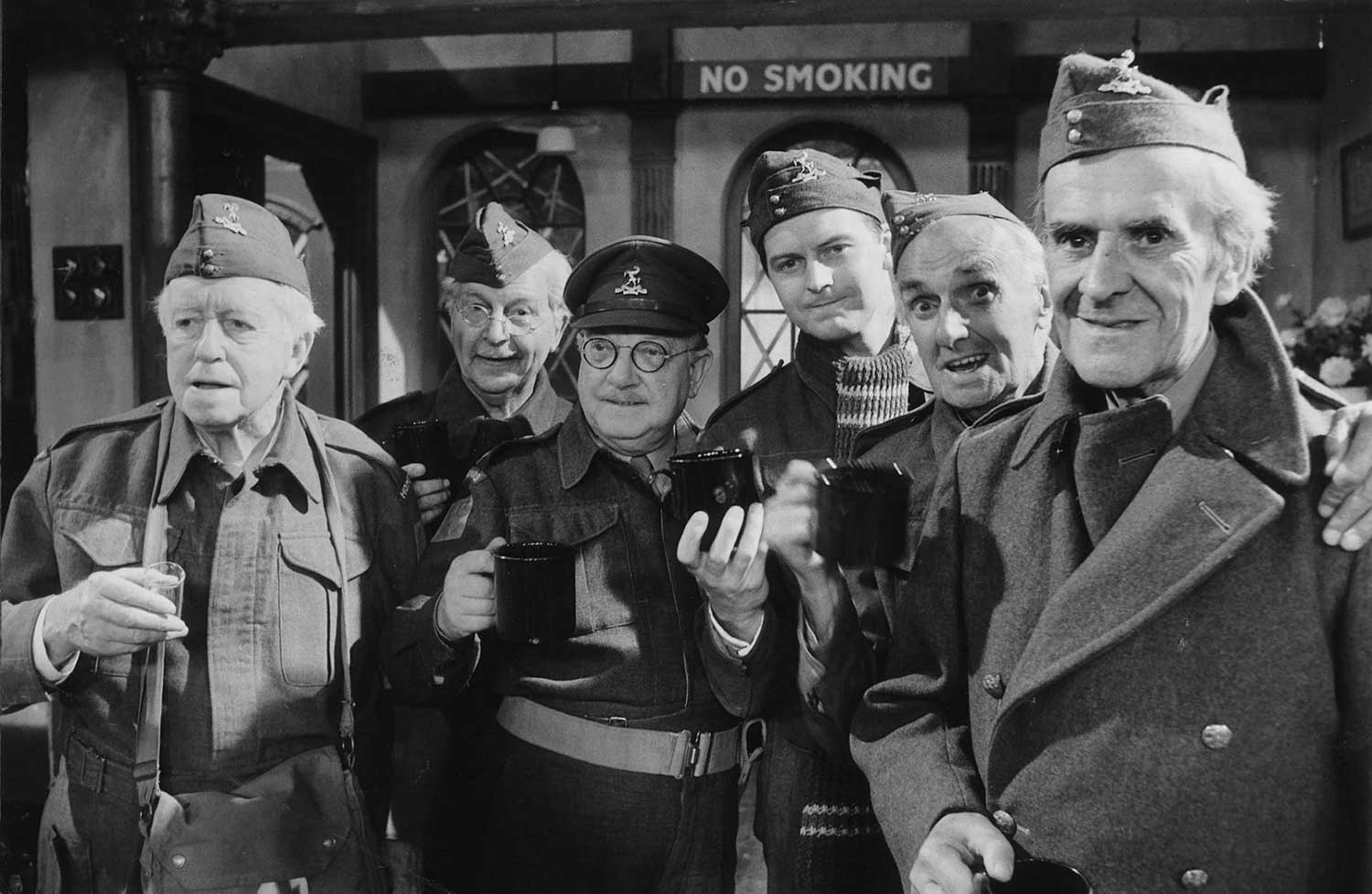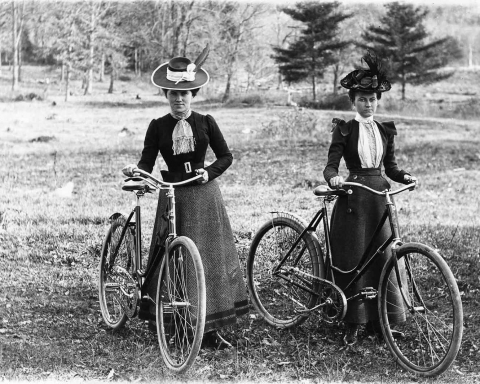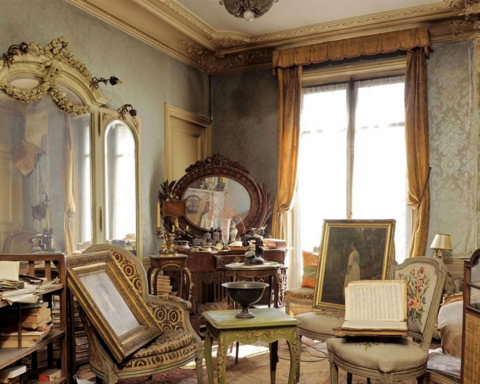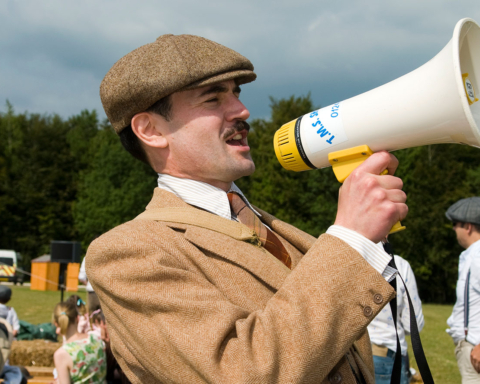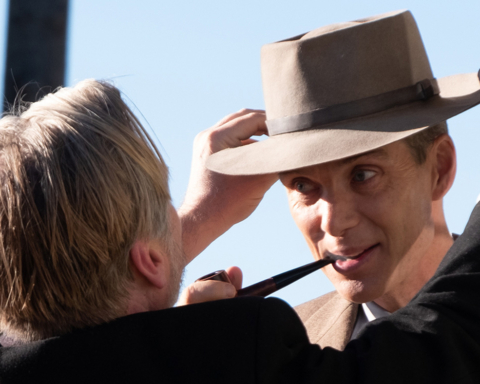Steve Pittard:
As a boy, John Elton Le Mesurier Halliley received coaching from former Essex pro Walter Meade, who was “only at his best when intoxicated, which happened to be most of the time.” At Grenham House prep school during one innings, John was perched at the non-striker’s end when a sitter came his way. Acting the giddy goat he dropped his bat to catch out his partner! The umpire/master was absolutely livid and sent him off. The scorebook recorded ‘retired hurt’; apt in a way as John later received a damn good thrashing.
Le Mesurier’s lax attitude to military drills matched Sergeant Wilson’s: “Do we really have to drag that great big gun up the hill sir? It really is an awful fag.”
He attended Sherborne and gave notice of his talent with a tour de force against Bruton. His slow spinners snared five victims for 16 runs, followed up by an undefeated century. The Shirburnian sniffily commented ‘He was inclined to treat a loose ball with too much respect.’

Le Mesurier’s sound opening technique saw promotion to the first XI in 1930. Wisden mentions him in dispatches: ‘Halliley started the season well and was making runs regularly, when he fell ill and did not play after the second week of June.’ According to John, his omission owed to an incident where he besmirched the school’s good name. After a superb knock against Westminster, he and some pals celebrated victory with a few sherberts in the buffet bar at Waterloo and made a confounded nuisance of themselves on the return train journey. A Time and Tide magazine columnist witnessed the shenanigans and accordingly the organ published a rant about unruly youth, with Sherborne scholars shown in a poor light.
During the Blitz, John came home to find his house blown to smithereens. His initial response was to ask the ARP warden if his jazz collection had survived. Now adopting his stage name John Le Mesurier (rhyming with treasurer) he signed up for the army. He startled his commanding officer by reporting for duty like a guest arriving for a country house weekend, bringing his dinner jacket, some gramophone records and a set of golf clubs. His lax attitude to military drills matched Sergeant Wilson’s: “Do we really have to drag that great big gun up the hill sir? It really is an awful fag.” In desperation, the top brass packed him to off to India as a captain in the Tank regiment. He took a copy of A.G. Macdonell’s England their England with him.

Le Mesurier’s cricketing credentials stood him in good stead for theatrical vacancies. Le Mez (as his chums called him) relates in his memoirs that impresario Sir Frank Benson, when recruiting for Rosencrantz and Guildenstern, advertised for actors who were ‘handy in the gully’. Sir Frank once wired: ‘Urgent – send a slow left-arm bowler to play Cassius’. The Boulting Brothers kept a full set of cricket gear in the props van for impromptu tussles between takes. John shone in many of their screen smashes, such as Private’s Progress, Carlton-Brown of the FO and I’m All Right Jack.
No British comedy felt truly complete without a Le Mesurier moment. Whether portraying bewildered barristers, jaded judges or vague vicars, the persona was indubitably John Le Mesurier, just with a different hat on. Amiable authority figures were his true forte. Invasion Quartet sees him as an ex-colonel in charge of the Dover Home Guard. He’s appalled when an explosive, launched from occupied France, destroys the local cricket pitch, interrupting a contest between crocked servicemen. He leads a disparate gang to track down and destroy the colossal cannon responsible for ruining the match.
As escape officer Wing Commander Piggot in A Coming-out Party, Le Mez helps spring a scientist (James Robertson-Justice). Piggot initially suspects the boffin of being a German plant, since when quizzed he didn’t know the answer to “When was the last Test match?”

John’s flannelled forays in charity capers added some class to thespian troupes such as the Blithering Britishers, or the unlikely alliance that was Eric Sykes and Jim Laker’s XI. When a Dads’ Army side took part in a fundraiser, John’s sole contribution was to lounge around in the pavilion flogging his autograph. In fairness the louche loafer was by now contractually obligated to refrain from athletic activities. Not that he overly exerted himself in the field anyway. His son Robin recalled that pater, in typical languid fashion, would perform “usually with one hand in his pocket and a cigarette in his mouth.” Le Mez viewed winding up his wristwatch as exercise. “This heat is awfully exhausting,” he complained on set as a doting popsy volunteered to undertake the chore.
Women found him irresistible. One night at a nightclub an amorous nurse begged to be ravaged in a ditch. The suede-shoed smoothy responded, “Well, my dear, I’d like to oblige you, but it’s rather late and dark… perhaps we ought to do it by daylight.” A game belly dancer offered to be his wife, but was politely let down with “I’m terribly sorry but I’m planning to marry the lady sitting opposite you.”
JLM tied the knot three times but was constantly cuckolded. First wife Hattie Jacques shacked up with the chauffeur, while his third wife Joan had an affair with Tony Hancock. Yet John remained remarkably sanguine about his partners’ peccadillos – “If she chooses to have sex with a Spaniard, that’s her business.”
Cameos in trite tosh like Au Pair Girls and Confessions of a Window Cleaner scarcely stretched his capabilities, but Le Mesurier landed a plum part in Dennis Potter’s drama Traitor. His outstanding portrayal of a sozzled spy (loosely based on Kim Philby) won him a BAFTA. The award doubled up as a doorstop. He considered accolades a trifle vulgar: “All we actors require is the occasional round of applause and the odd country villa with a large swimming pool.”
Le Mez considered accolades a trifle vulgar: “All we actors require is the occasional round of applause and the odd country villa with a large swimming pool.”
Though reserved by nature, Le Mez had a bohemian bent. On a whim he’d motor miles to visit two old dears, having trained their pet parrot to scream “You lazy old bastard!” upon his appearance. His irreverent wit would manifest itself in a silly game with Peter Sellers, which involved dreaming up improbable-sounding album titles such as “An evening with Arthur Mullard.” Once, when touring with the Dad’s Army roadshow, the BBC accidentally booked him into a gay hotel. He found this most amusing and, without telling the rest of the crew, invited them over for drinks. They spotted him at the bar, hands on hips, parading a see-through blouse topped off with a cravat. The camp contingent, primed with buckshee booze, waltzed up to him every so often and gushed “Ooh, Hello John”.
He adored the disco group Earth, Wind and Fire, but jazz was his passion. In 1976 the deadpan dilettante released an LP titled What is Going to Become of Us All? With his characteristic economy of effort the tracks are more spoken than sung. His toffish tones can be heard crooning gems by Cole Porter and Noel Coward. For many years Le Mez’s velvety voice extolled the virtues of Homepride flour – and he also narrated the 1970s cartoon Bod.
The fey flaneur frequented Ronnie Scott’s. He’d get on the blower to his chums – murmuring “Playtime” – and invite the likes of Jeffrey Bernard and Terry-Thomas for a night’s carousing. He’d often go on the sauce with Tony Hancock. The pair would indulge in midnight cricket duels in dark deserted parks, and then scarper after hearing the ball shatter a nearby window.
John’s alter ego Sergeant Wilson skippered the Walmington-on- sea XI. He pleaded that the club scoreboard, despite being under the threat of aerial attack, might spare being mothballed until after the final fixture. Mainwaring refused: “Unfortunately, Wilson, the Nazis don’t play cricket. If they did, we wouldn’t be on opposite sides.” An episode called ‘The Test’ concerns a clash against the ARP warden’s mob, with Wilson in his element. To the annoyance of Captain Mainwaring, he swans about in a snazzy striped blazer, much as Le Mez might have done when lollygagging around for The Gentlemen of Suffolk. The hangdog hero saves the day with a nonchalant eighty odd, showboating some cultured cuts and effortless pulls.
Residing in New York, John Lennon was once asked what he missed most about England. He replied “Bath Oliver biscuits and John Le Mesurier”. Chocolate comestibles aside, there’s no denying Le Mez achieved national treasure status. When in 1983 the beloved boulevardier ‘conked out’ (as he stipulated his death should be reported in The Times) his demise filled the front pages. A Guardian leader summed up his enduring appeal: “He somehow embodied a symbolic British reaction to the whirlpool of the modern world – endlessly perplexed by the dizzying and incoherent pattern of events.”
John Le Mesurier’s last words, spoken to his wife, were: “It’s all been rather lovely”.


